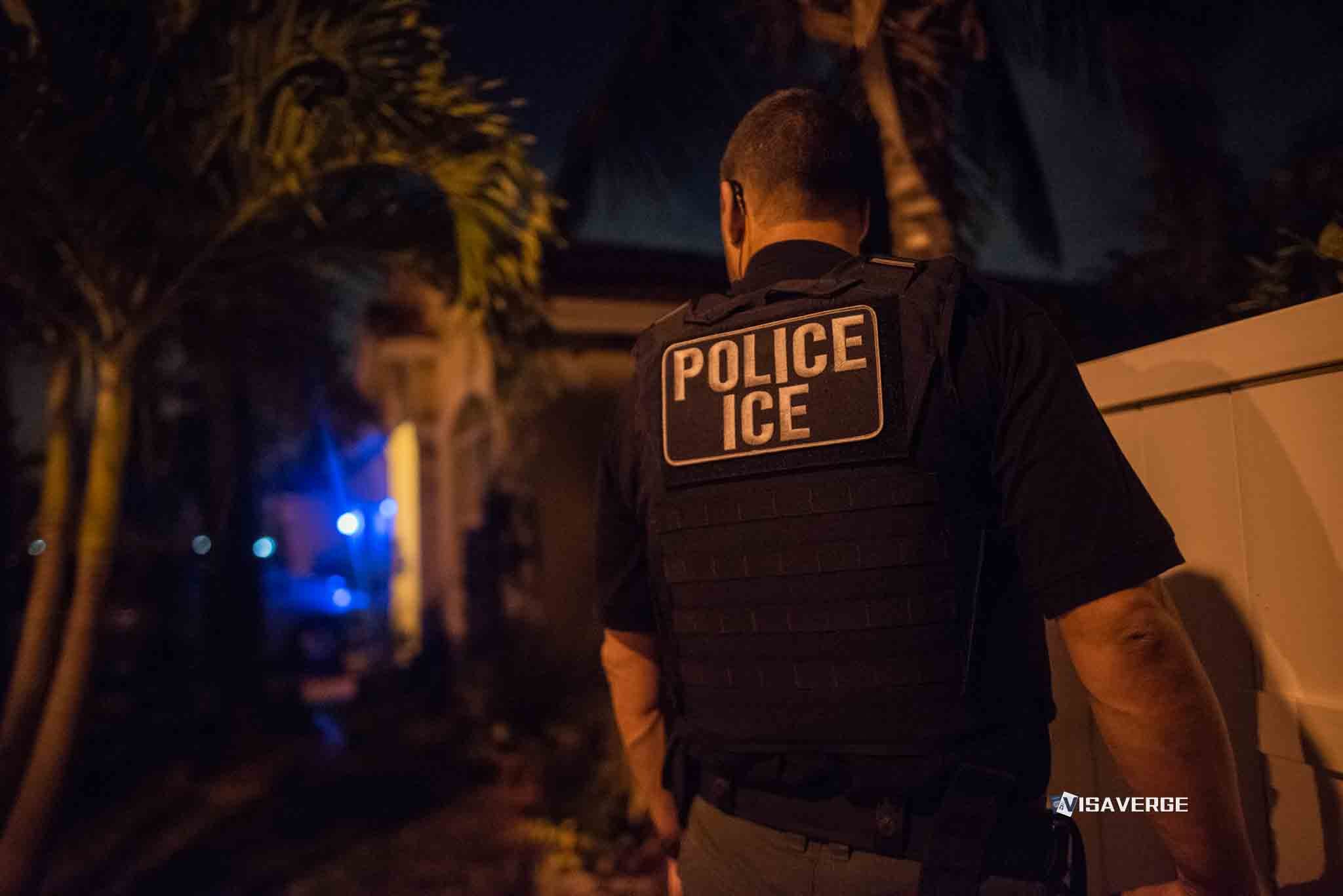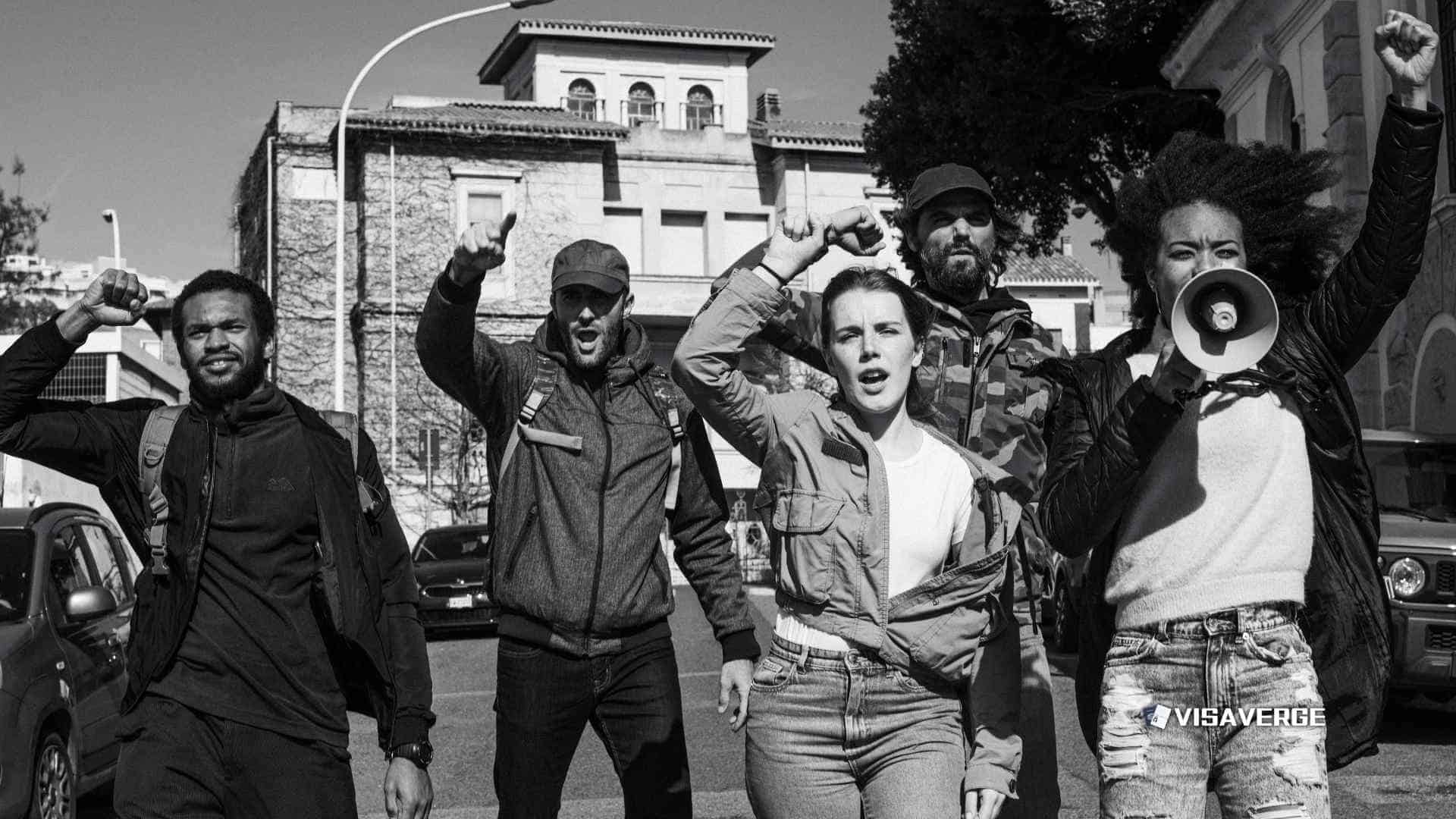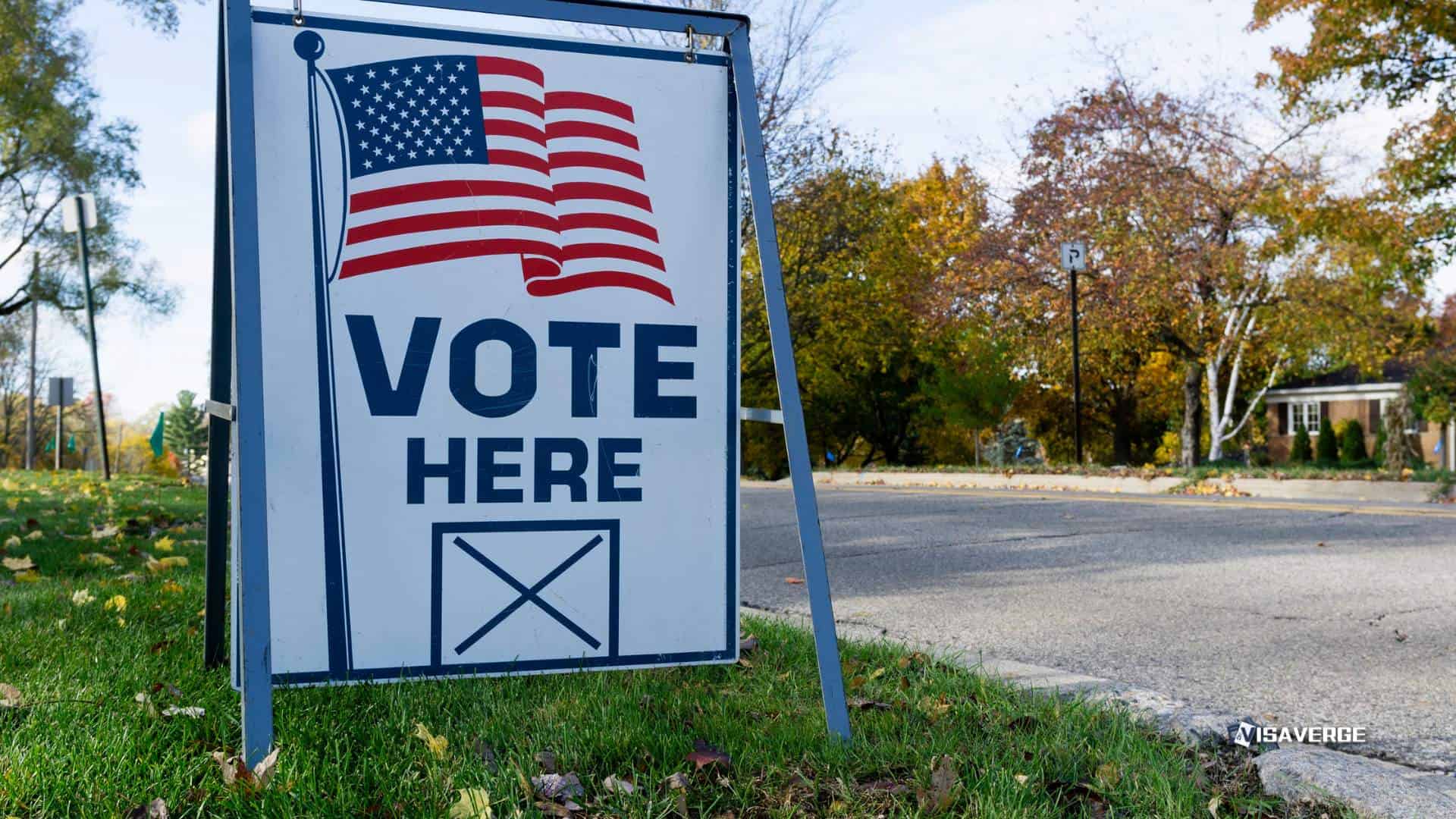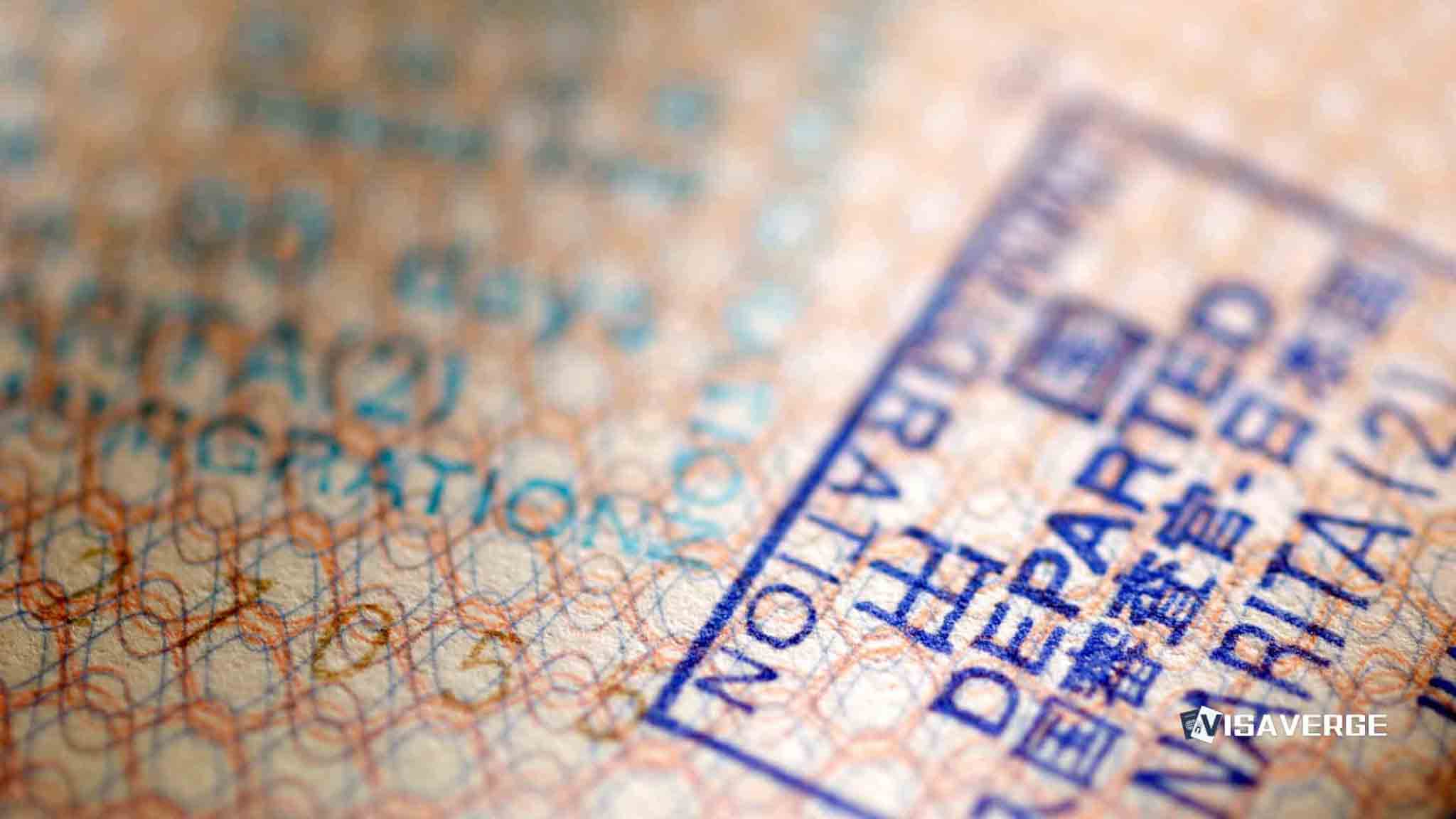Key Takeaways
• Ward Sakeik, a 22-year-old stateless Palestinian, detained during honeymoon under Trump’s strict immigration enforcement.
• Trump’s Project 2025 expands expedited removal and reduces protections for vulnerable immigrants like stateless and mixed-status families.
• Since May 2025, 30% of ICE detainees had criminal records, showing increased detentions of non-criminal immigrants.
A Newlywed’s Deportation Battle Highlights Trump Administration’s Hardline Immigration Shift
A 22-year-old Palestinian woman, Ward Sakeik, is at the center of a major immigration controversy in the United States 🇺🇸. Detained at the Prairieland Detention Center in Alvarado, Texas, Sakeik’s case has become a symbol of the Trump administration’s strict immigration enforcement during its second term. Her story raises important questions about how new policies affect stateless people, long-term residents, and mixed-status families.

Who Is Ward Sakeik and Why Is She Detained?
Ward Sakeik is a stateless Palestinian woman who has lived in the United States 🇺🇸 since she was eight years old. She arrived on a tourist visa with her family, who are originally from Gaza. Over a decade ago, her family applied for asylum, but their request was denied. Since then, Sakeik has lived under an “order of supervision.” This means she was allowed to stay in the country, had work authorization, and checked in regularly with Immigration and Customs Enforcement (ICE).
In February 2025, Sakeik was returning from her honeymoon in the U.S. Virgin Islands with her U.S. citizen husband. Upon arrival, U.S. authorities detained her at the airport. The Department of Homeland Security (DHS) argued that her trip to the U.S. Virgin Islands counted as “leaving the country,” which triggered her detention because of a final removal order from years ago.
She was taken to the Prairieland Detention Center, where she remains as of July 2025. On July 1, federal authorities tried to deport her for the second time, even though a court order from U.S. District Judge Ed Kinkeade had blocked her removal while her legal case is still pending. The attempted deportation was stopped, but Sakeik was returned to detention without clear information about where she was being taken.
Why Is Sakeik’s Case So Complicated?
Sakeik’s situation is especially difficult because she is stateless. Stateless people do not have citizenship in any country. Her family is from Gaza, but she does not have citizenship in Palestine or any other country. This makes it nearly impossible for her to be legally deported anywhere.
Her legal status in the United States 🇺🇸 has been in limbo for years. Even though she has lived most of her life in the U.S., her asylum application was denied, and she has a final removal order. However, she was allowed to stay under supervision, work, and build a life. She recently married a U.S. citizen, and the first stage of her green card application was approved in late June 2025. This could open a path to permanent residency, but her detention and ongoing deportation proceedings have left her future uncertain.
The Trump Administration’s Immigration Policies: What Changed?
The Trump administration’s second term has brought a sharp increase in immigration enforcement. According to analysis by VisaVerge.com, the administration has focused on mass deportations, expanded expedited removal, and rolled back humanitarian protections for vulnerable groups.
Key policy changes include:
- Nationwide expansion of expedited removal: This allows ICE to quickly deport people without a court hearing if they cannot prove they have been in the U.S. for at least two years.
- Ending protections for vulnerable groups: The administration has tried to end programs like Temporary Protected Status (TPS), Deferred Action for Childhood Arrivals (DACA), and visas for crime victims (T and U visas).
- Increased ICE operations in sensitive areas: ICE has begun making arrests in places that were previously considered off-limits, such as schools, hospitals, and religious institutions.
- Targeting stateless and politically vulnerable individuals: There has been a rise in arrests and deportations of people with no criminal record or with very weak legal status.
These changes are part of a broader plan called “Project 2025,” which outlines the administration’s immigration goals.
How Do These Policies Affect People Like Sakeik?
Sakeik’s case is not unique. Many people with old removal orders, even those who have lived in the U.S. for most of their lives, are now at risk. The new rules mean that even a short trip to a U.S. territory, like the U.S. Virgin Islands, can be seen as “leaving the country.” This can trigger detention and possible deportation, even if the person has been following all legal requirements.
For stateless people, the risks are even greater:
- No country to return to: Stateless individuals like Sakeik cannot be easily deported because no country will accept them.
- Limited legal options: People with old removal orders are often not eligible for bond (release from detention while their case is pending).
- Legal limbo: Even if they have a path to legal status, such as a green card application, they can still be detained and face removal.
What Do the Numbers Show?
Recent data highlights the shift in enforcement:
- Since late May 2025, only 30% of those arrested by ICE had criminal convictions, down from 44% earlier in the year. This means more people with no criminal record are being detained.
- As of April 2025, over 1,000 international students and graduates had their visas revoked. By mid-May, nearly 2,000 student visas were canceled, though many were later restored by court orders.
These numbers show that the focus has moved from targeting people with criminal records to a much wider group, including students, long-term residents, and stateless individuals.
Legal Challenges and Court Actions
The Trump administration’s immigration policies have faced many legal challenges. Several executive orders, including those affecting birthright citizenship and asylum, are being fought in court. For example, a federal district court has temporarily blocked the order ending birthright citizenship.
Immigrants’ rights groups, such as the American Civil Liberties Union (ACLU), have filed lawsuits to stop fast-track deportation policies. They argue that these policies violate due process and unfairly target people who are following the law.
In Sakeik’s case, the courts have played a key role. Judge Ed Kinkeade’s order stopped her deportation while her legal case is still open. However, the administration continues to push for strict enforcement, sometimes testing the limits of what the courts will allow.
What Is Expedited Removal and How Does It Work?
Expedited removal is a process that allows ICE to quickly deport certain people without a hearing before an immigration judge. Under the Trump administration, this process now applies nationwide. If someone cannot prove they have been in the U.S. for at least two years, they can be detained and deported almost immediately.
For people like Sakeik, who have lived in the U.S. for many years but have old removal orders, this process can be especially harsh. They may not get a chance to present their case in court, and their options for legal relief are very limited.
For more information on expedited removal and immigration enforcement, visit the official U.S. Immigration and Customs Enforcement (ICE) website.
Stakeholder Perspectives: Who Supports and Who Opposes These Policies?
Immigrant rights advocates and legal experts have strongly criticized the Trump administration’s approach. They say cases like Sakeik’s show the “brutal reality” for immigrants, refugees, and legal residents, especially those who are stateless or have lived in the U.S. for most of their lives. These groups argue that the policies create fear and instability in immigrant communities and break up families.
DHS and Trump administration officials defend their actions. They say that enforcing removal orders and acting on visa overstays is necessary to restore “integrity” to the immigration system. They argue that the law must be followed, even if it means detaining and deporting people who have lived in the U.S. for many years.
The judiciary has become a key player in this debate. Federal courts have sometimes blocked removals and reviewed the legality of new executive actions. However, the administration continues to push for strict enforcement, often leading to legal battles.
What Happens Next for Ward Sakeik?
Sakeik’s future remains uncertain. Her legal team is fighting for her release and for the chance to complete her green card application. The outcome of her case could set important precedents for other stateless people and those with long-standing ties to the United States 🇺🇸.
If she is allowed to stay, it could open the door for others in similar situations to seek relief. If she is deported, it may become even harder for stateless individuals to find protection in the U.S.
Broader Implications: What Does This Mean for Immigrants and Families?
The Trump administration’s 2025 immigration policies have created a climate of fear and uncertainty for many people:
- Mixed-status families (where some members are citizens and others are not) face the risk of separation.
- Stateless persons have almost no options for legal relief and can be detained for long periods.
- Long-term residents who have lived in the U.S. for most of their lives can be detained and deported, even if they have no criminal record.
- Students and workers are also affected, with many losing their visas or facing sudden changes in their legal status.
Legal protections and humanitarian programs are under threat or have already been ended. For many, the courts are the only hope for relief.
What Can People Do If They Are in a Similar Situation?
If you or someone you know is facing detention or deportation:
- Contact a qualified immigration lawyer as soon as possible. Legal aid organizations like the National Immigrant Justice Center and the American Immigration Lawyers Association can help.
- Know your rights: Even under strict enforcement, you have the right to speak to a lawyer and to ask for a hearing in some cases.
- Stay informed: Policies are changing quickly, and court decisions can affect your options.
- Check the status of your immigration forms: For example, if you are applying for a green card, make sure you use the official USCIS Form I-485 and follow all instructions carefully.
Looking Ahead: Policy Changes and Legal Battles
The Trump administration is expected to continue pushing for even stricter immigration enforcement. Policy analysts believe there will be more executive actions and possibly new laws to expand current measures. However, many of these changes will likely be challenged in court.
The outcome of cases like Sakeik’s will shape the future for thousands of people in similar situations. As reported by VisaVerge.com, the courts remain the main check on executive power, but the practical effect is ongoing uncertainty and fear for immigrant communities across the United States 🇺🇸.
Key Takeaways
- Ward Sakeik’s case highlights the real-life impact of the Trump administration’s hardline immigration policies, especially for stateless people and long-term residents.
- Legal protections are shrinking, and more people are at risk of detention and deportation, even if they have lived in the U.S. for many years.
- The courts play a critical role, but the administration continues to push for strict enforcement, leading to ongoing legal battles.
- Mixed-status families, students, and stateless individuals face growing uncertainty and fear as policies change.
- Staying informed and seeking legal help are the best ways to protect your rights and understand your options in this changing environment.
For more information or help, you can contact U.S. Citizenship and Immigration Services (USCIS) or visit the ACLU for updates on legal challenges and immigrant rights.
The story of Ward Sakeik and the Prairieland Detention Center is just one example of how immigration policy changes can deeply affect real people’s lives. As the debate continues, the stakes remain high for families, communities, and the future of immigration in the United States 🇺🇸.
Learn Today
Stateless → A person without citizenship in any country, complicating legal deportation and residence rights.
Expedited Removal → A fast deportation process allowing ICE to remove individuals without a court hearing if certain criteria are unmet.
Order of Supervision → An immigration status letting a person stay in the U.S. with restrictions despite a removal order.
Temporary Protected Status (TPS) → A program granting temporary legal status to nationals from unsafe countries.
Deferred Action for Childhood Arrivals (DACA) → A policy protecting eligible undocumented youth from deportation and granting work permits.
This Article in a Nutshell
Ward Sakeik’s detention highlights harsh Trump policies targeting stateless immigrants and those with old removal orders, risking families and legal protections amid expanding expedited deportations across the U.S.
— By VisaVerge.com








